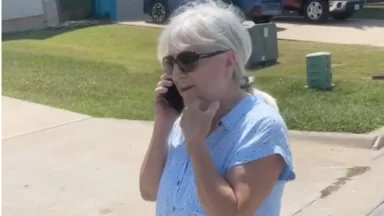In Tulsa, Oklahoma, officers continue to arrest people for failing to pay court debts—even ones more than a decade old—despite the public health risks involved in hands-on policing, according to the Washington Post.
And in Pima County, Arizona, David Rogers was notified in late March that the government is keeping his tax refund, which he needs to pay mounting bills. The reason: He owes $215 in court fees stemming from a drug paraphernalia charge, records show. “I am angered that the state thinks my family‘s and my lives are worth less than $300,” Rogers said.
Across the country, trials and hearings have been delayed or canceled to help stop the spread of COVID-19. But that hasn’t stopped many courts from continuing to collect fines and fees, even as millions of Americans find themselves out of a job and less able to pay up.
How Native Americans Are Fighting a Food Crisis
The coronavirus crisis has hit state and local coffers hard. Two main sources of revenue—sales taxes from now-shuttered restaurants and bars, and traffic tickets from now-empty highways—have cratered. This comes at a time when officials are straining to pay for, among other things, desperately needed medical equipment and unemployment benefits for record numbers of laid-off workers.
And as the next round of federal stimulus negotiations continue on Capitol Hill, Senate Majority Leader Mitch McConnell, a Republican, and Treasury Secretary Steven Mnuchin have resisted giving financial support to states and local jurisdictions. “The number is zero,” New York Gov. Andrew Cuomo, a Democrat, “We have no money.”
As a result, states are dipping into rainy-day funds, implementing hiring freezes and issuing new fines for violating orders to stay at home and wear masks. And some localities are already relying on a tried-and-true revenue stream: the court system and the predominantly low-income Americans who churn through it.
Source: Court Is Closed Due to Coronavirus. But You Still Owe Those Fines and Fees.




Recent Comments